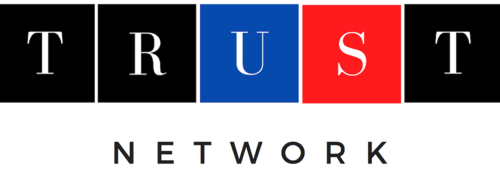Convening Centers
These local organizations are at the heart of the TRUST Network initiative.
To date, all of our Convening Centers are also Community Mediation Centers that are members of NAFCM. Your center does not need to be a member of NAFCM to join the Network, and you do not have to be a community mediation center.
As the Network expands, we will welcome more local organizations
to fill the role of Convening Center in their community.
We believe that Community Mediation is Community Mobilization.
TRUST Convening Centers are located across the country and involved in activities to build national cohesion and a peace-sustaining infrastructure. The National Association for Community Mediation (NAFCM), as one of the three national facilitating organizations for the TRUST Network, guides the quality and integrity of the TRUST Convening Centers and provides monthly support to enhance these Centers’ clarity of vision, curiosity, and collaborative abilities. The TRUST Network welcomes more local organizations to fill the role of a TRUST Convening Center in their community by initiating a call on a rotating basis. If you have questions or would like to be considered to become a TRUST Network Convening Center, please contact admin@nafcm.org.
TRUST Network Convening Centers are anchored in their communities. They provide approaches in such a way that the intent behind remains focused on areas like inclusivity, access, and diversity.
TRUST Convening Centers model integrity by promoting accountability, ethics, and transparency. A commitment to quality is demonstrated through the values and standards of excellence found in the TRUST Convening Center Tenets and Practices.
TRUST Network Convening Center Tenets:
A private non-profit or public agency with skill sets and interests aligned with the work of the TRUST Network, and staff and governing/advisory board representative of the diversity of the community served.
The use of trained community stewards as providers of services; the practice of democracy, social cohesion, and peace-creation is open to all persons.
Providing direct access to the public through self-referral and striving to reduce barriers to service including physical, linguistic, cultural, programmatic, and economic.
Providing service regardless of current funding limitations.
Providing service and hiring without discrimination on the basis of race, color, religion, gender, age, disabilities, national origin, marital status, personal appearance, gender identity, sexual orientation, family responsibilities, matriculation, political affiliation, source of income.
Providing a forum for conflict revolution at the earliest stage of conflict. Having a pulse with the community and being aware when conflict begins.
Providing an alternative to the judicial system at any stage of a conflict. Be aware of other systems that impact the ability of members to be recognized and heard.
Initiating, facilitating, and educating for collaborative community relationships to affect positive systemic change.
Engaging in public awareness and educational activities about the values and practices of cohesion and peacebuilding
TRUST Network Convening Center Practices:
Transparency within your community; constantly connecting with similar agencies, organizations, and individuals within your community to expand the TRUST Network locally.
Develop and strengthen local capacities and networks for peace, situation monitoring and intervention.
Rhode Island
Centers with a * are taking a statewide lead for the TRUST network in addition to their locality.
























